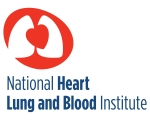Practice-Based Opportunity for Promotion of Weight Reduction Trials (POWER Trials)
POWER Trials:UO1 Cooperative Agreements
National Heart Lung Blood Institute
In September 2006, the National Heart, Lung, and Blood Institute (NHLBI) funded three institutions to conduct separate, 5-year randomized trials to test the effectiveness of interventions delivered in routine clinical practice in achieving weight loss in obese patients with one or more additional CVD risk factors.
The three institutions were Johns Hopkins University, Baltimore, MD; University of Pennsylvania, Philadelphia, PA; and Washington University, St Louis, MO. NHLBI appropriated approximately $17.5 million to this research program and awarded the grants as UO1 cooperative agreements, an NIH funding mechanism that anticipated substantial programmatic involvement between the NHLBI and grantees.
Project Period: 9/25/2006 - 6/30/2011
Contact: Dr. Barbara Wells
The purpose of this program is conduct separate, five-year randomized control trials (RCTs) to test the effectiveness of interventions delivered in routine clinical practice on achieving weight loss in obese patients with at least one additional cardiovascular risk factor.
Three studies were funded and all share the same primary outcome measure: change of weight 24 months following randomization.
The first RCT targets 390 obese patients, with two or more metabolic syndrome components, in 6 primary care practices. This three-arm trial will compare minimal care, brief lifestyle counseling, and enhanced lifestyle counseling with either meal replacements or weight loss medication.
In addition to weight change, this RCT will assess change in metabolic syndrome prevalence, HOMA, C-reactive protein, lipid levels, blood pressure, waist circumference, as well as costs, mood, quality of life, sexual functioning, and other psychological and behavioral variables.
The second RCT targets 360 obese, low income, predominantly racial/ethnic minority patients, with a diagnosis of hypertension, who are patients in three community health centers.
This two-arm trial will compare usual care to lifestyle modification with electronic supports, plus interpersonal and socio-environmental support provided by community health workers and community resource linkages.
The RCT will also measure blood pressure control, behavioral outcomes, and quality of life. The third funded study targets 390 obese patients in two primary care practices with hypertension, hypercholesterolemia, and/or diabetes.
A multi-channel, behavioral intervention (telephone, Web, and email contacts) without in-person visits; a multi-channel behavioral intervention with in-person (predominantly group sessions) along with telephone, Web and email contacts; and usual medical care with self-directed weight approaches will be compared.
Blood pressure and hypertension control will be measured, as well as lipid levels, HOMA-IR index, and Framingham Risk Score.
